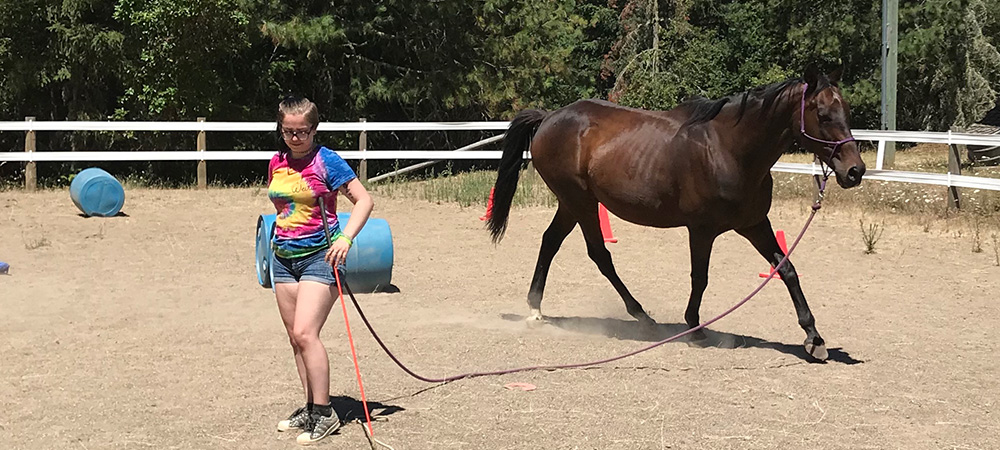We aim to help anyone who is having trouble engaging via traditional talk-based intervention. Our program is evidence-based and was developed by TheHorseCourse in the UK; we are the only facilitator of this program in the United States. We utilize horses that are trained in natural horsemanship so that nonverbal communication, in both directions, is strengthened. This allows our participants the freedom to explore new ways to engage and helps them achieve rapid success. After experiencing aha! moments and engagement with their horse partners, participants begin to build new strategies in one or more of eight key life skills: assertiveness, perseverance, taking responsibility, empathy, calmness, planning, communication, and engagement. Once we help our participants begin to engage, we provide a thorough summary of successful approaches to their referrer.
Please enjoy the following video to hear about the experience of one of our participants.
Because talking is not working for our participants, we must use a different method to reach them. The courses at Haven have minimal talking and depend heavily on communication with horses, which is purely nonverbal and provides immediate feedback. Participants who are having trouble talking thrive in this environment and usually progress quite quickly. By the end of a one-week ReStart course, many participants are capable of performing tasks required to pass Parelli Natural Horsemanship’s level 1 assessment and are able to begin talking about their progress and how to continue.
The following videos show samples of one participant’s accomplishments.
High Hope Haven is the only equine facility in the United States that is certified to deliver the courses developed by TheHorseCourse in the UK. TheHorseCourse has been collecting data on their program’s success for several years and High Hope Haven now also contributes the results of our courses to this evidence. TheHorseCourse’s pioneering work in prisons showed a 27% point reduction of reoffending within 12 months. The data also reflects that 85% of youth improved their attendance and engagement at school and anxiety was reduced by 33% on average (based on 2 month follow-up reports).
